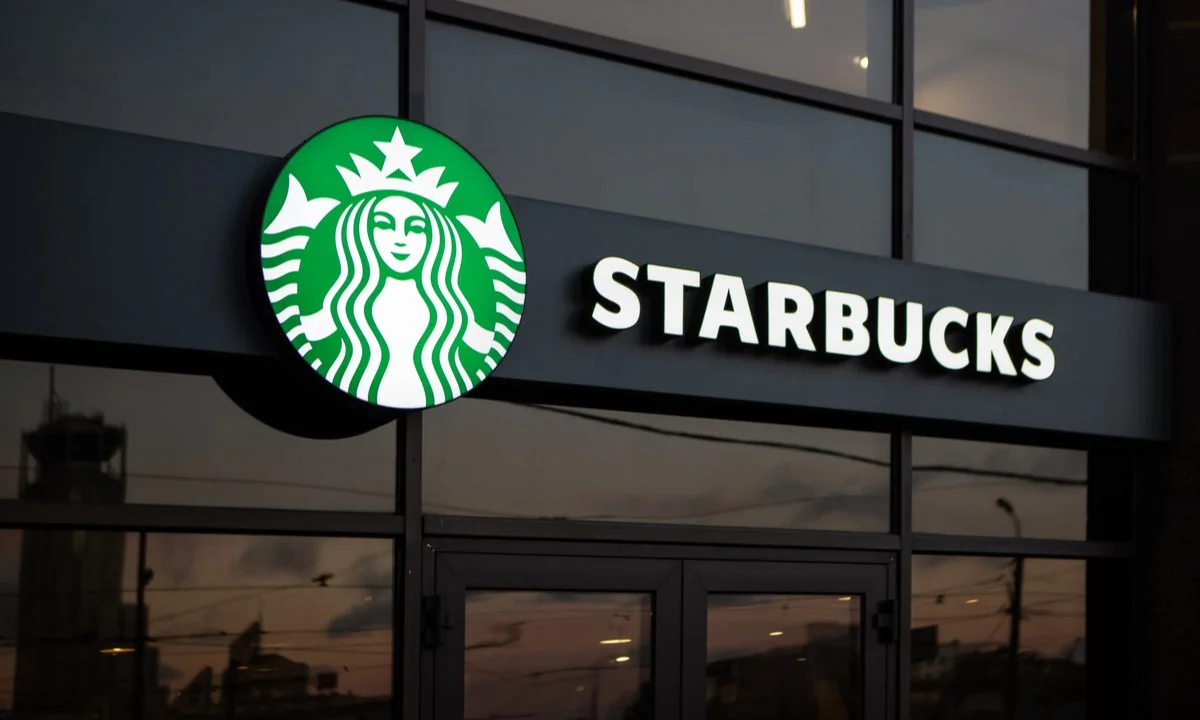Grocery store insurance is a specialized type of commercial insurance designed to protect grocery stores, supermarkets, and other food retail establishments from various risks and liabilities. This comprehensive insurance program covers a wide range of potential losses, including property damage, liability claims, employee injuries, and business interruptions.
Grocery store insurance typically includes the following common coverage types:
-
Property Insurance: This coverage protects the physical assets of the grocery store, including the building, equipment, inventory, and fixtures, against risks such as fire, theft, vandalism, and natural disasters.
-
General Liability Insurance: This coverage safeguards the grocery store from third-party claims of bodily injury, property damage, or personal injury that may occur on the premises or as a result of the store’s operations.
-
Product Liability Insurance: As grocery stores deal with food and consumable products, this coverage is crucial in protecting against claims arising from defective or contaminated products that may cause illness or injury to customers.
-
Workers’ Compensation Insurance: This coverage is legally required in most states and provides benefits to employees who suffer work-related injuries or illnesses, including medical expenses and lost wages.
-
Business Interruption Insurance: In the event of a covered loss that forces the grocery store to temporarily close or suspend operations, this coverage helps to replace lost income and cover ongoing expenses during the recovery period.
By understanding the various coverage types and tailoring an insurance program to their specific needs, grocery store owners can mitigate risks, protect their investments, and ensure the continuity of their operations in the face of unexpected events.
Insurance Coverage for Physical Assets
Grocery store insurance programs typically include coverage for the physical assets of the business, such as buildings, equipment, and inventory. This type of coverage is crucial to protect against potential losses from various risks and perils.
One of the primary risks that grocery stores face is the threat of natural disasters. Depending on the geographical location, stores may be susceptible to events like hurricanes, earthquakes, floods, or wildfires. Insurance policies can provide protection against the damage caused by these natural calamities, helping grocery stores recover from the devastating effects and resume operations more quickly.
In addition to natural disasters, grocery stores are also vulnerable to threats like theft and vandalism. With valuable inventory and equipment on the premises, the risk of burglary or malicious damage is always present. Comprehensive insurance coverage can help mitigate the financial losses resulting from such incidents, ensuring that the store can replace stolen or damaged goods and repair any damage to the property.
Moreover, grocery stores often house specialized equipment, such as refrigeration units, freezers, and other machinery essential for preserving and displaying perishable goods. Insurance policies can cover the repair or replacement costs of this equipment in case of breakdowns or accidental damage, minimizing disruptions to the store’s operations and preventing significant financial losses.
Comprehensive Liability Coverage: Safeguarding Grocery Stores

Grocery stores face a multitude of risks on a daily basis, from customer injuries and property damage to product liability claims. Comprehensive liability coverage is a crucial component of any grocery store insurance program, providing a safety net against the financial consequences of such incidents.
Customer injuries are an ever-present concern in grocery stores, where spills, fallen merchandise, and slippery floors can lead to slip-and-fall accidents. A single incident can result in significant medical expenses and potential lawsuits, making liability coverage essential. This coverage protects the grocery store from the costs associated with customer injuries, including medical bills, legal fees, and settlements or judgments.
Property damage is another risk that grocery stores must address. Fires, natural disasters, or even accidental damage caused by customers or employees can result in costly repairs or replacements. Liability coverage can help cover the expenses associated with repairing or replacing damaged property, ensuring that the grocery store can quickly recover and resume normal operations.
Product liability claims are a unique risk faced by grocery stores, as they deal with a wide range of food and consumer products. If a customer becomes ill or injured due to a defective or contaminated product, the grocery store could be held liable. Comprehensive liability coverage can provide protection against such claims, covering legal fees, settlements, and other associated costs.
For grocery stores, the importance of comprehensive liability coverage cannot be overstated. Without adequate protection, a single incident could potentially lead to financial ruin. By investing in a robust insurance program, grocery store owners can operate with peace of mind, knowing that their business is safeguarded against the unexpected.
Workers’ Compensation Insurance
Workers’ compensation insurance is a mandatory coverage for grocery stores in most states. It provides financial protection for employees who suffer work-related injuries or illnesses. This insurance covers medical expenses, lost wages, and rehabilitation costs for injured workers, regardless of who was at fault for the accident.
Grocery stores, like many other businesses, are required by law to carry workers’ compensation insurance. The costs and requirements for this coverage can vary depending on the state, the number of employees, and the specific risks associated with the grocery store’s operations.
Workers in grocery stores face various risks, such as slips and falls, repetitive motion injuries from stocking shelves or operating cash registers, and injuries from handling heavy boxes or equipment. Additionally, exposure to refrigerated areas, cleaning chemicals, and other hazards can lead to illnesses or injuries.
Failure to carry workers’ compensation insurance can result in significant fines and penalties for grocery store owners. In some states, business owners may even face criminal charges for non-compliance. Therefore, it is crucial for grocery stores to ensure they have adequate workers’ compensation coverage to protect their employees and comply with state laws.
Delivery Vehicle and Company Car Insurance
Grocery stores with delivery services or company vehicles face unique insurance needs to protect their business operations. Delivery vehicle insurance and commercial auto insurance are crucial components of a comprehensive grocery store insurance program.
Delivery vehicles, such as vans or trucks used for transporting groceries to customers’ homes, require specialized coverage. These vehicles are on the road more frequently and face higher risks of accidents, theft, or damage. Delivery vehicle insurance helps cover repair costs, liability claims, and potential cargo losses.
Similarly, any company-owned vehicles used by employees for business purposes, such as running errands or attending meetings, should be covered under a commercial auto insurance policy. This coverage protects the grocery store from financial losses resulting from accidents, injuries, or property damage involving company vehicles.
For grocery stores with an extensive delivery service or a large fleet of company cars, having adequate insurance coverage is essential. It safeguards the business against potential liabilities and ensures uninterrupted operations, even in the event of an incident involving a delivery vehicle or company car.
Contamination and Product Liability Coverage
Grocery stores face significant risks from potential claims of contaminated or defective food products. A comprehensive insurance program should include product liability coverage to protect the business from lawsuits and financial losses related to such incidents. This type of coverage can safeguard the grocery store against claims of foodborne illnesses, allergic reactions, or injuries caused by defective or mislabeled products.
Product liability insurance typically covers legal fees, settlements, and awarded damages if a customer becomes ill or injured due to a product sold by the grocery store. It can also cover the costs of recalling contaminated or defective products from the market. With the increasing number of food recalls and heightened consumer awareness about food safety, this coverage is crucial for grocery stores to mitigate potential losses and protect their reputation.
Moreover, grocery stores may be held liable for contamination or defects that occur further up the supply chain, even if the issue did not originate within their facilities. Product liability coverage can provide protection in such scenarios, ensuring the business is not left to shoulder the financial burden alone.
Protecting Perishable Inventory with Business Interruption Coverage
Business interruption insurance is a crucial component of a comprehensive grocery store insurance program. It provides coverage for lost income and operating expenses when a covered event, such as a natural disaster, fire, or mandatory closure, forces the grocery store to temporarily cease operations.
Read About How Green Light Auto Insurance Rewards Eco-Friendly Drivers
For grocery stores, this coverage is particularly important due to the perishable nature of their inventory. A prolonged closure can result in significant financial losses from spoiled produce, dairy products, and other perishable goods. Business interruption insurance helps mitigate these losses by reimbursing the grocery store for the income it would have earned had the interruption not occurred, as well as covering the costs of disposing of spoiled inventory.
Moreover, this coverage can also assist with expenses related to relocating operations temporarily, such as renting a temporary space, moving equipment, and advertising the new location to customers. By providing a financial safety net, business interruption insurance allows grocery stores to focus on resuming normal operations and minimizing disruptions to their customers and supply chain.
Cyber Insurance for Grocery Stores
Cyber insurance has become an essential coverage for grocery stores, especially those with online sales and customer data. With the rise of e-commerce and digital transactions, grocery stores are increasingly vulnerable to cyber threats such as data breaches, hacking attempts, and malware attacks.
Cyber attacks can have severe consequences for grocery stores, including financial losses, reputational damage, and legal liabilities. A data breach can expose customers’ personal and financial information, leading to identity theft and fraud. Additionally, cyber attacks can disrupt business operations, resulting in lost sales and productivity.
Cyber insurance policies typically cover various costs associated with cyber incidents, such as:
- Forensic investigations to identify the source and extent of the breach
- Notification and credit monitoring services for affected customers
- Legal fees and regulatory fines
- Business interruption losses
- Reputation management and public relations expenses
For grocery stores with online sales and customer databases, cyber insurance is crucial to mitigate the risks associated with handling sensitive information. These stores collect and store customers’ personal data, including names, addresses, payment details, and purchase histories, making them attractive targets for cybercriminals.
By having cyber insurance in place, grocery stores can better protect themselves against the financial and reputational consequences of a cyber attack. It provides a safety net and peace of mind, allowing businesses to focus on their core operations while being prepared for potential cyber threats.
Employee Training and Safety Protocols
Proper employee training is crucial for grocery stores to mitigate risks and reduce insurance claims. Comprehensive training programs should cover various aspects, including:
Safety Protocols: Employees must be thoroughly trained on safety protocols, such as proper lifting techniques, handling hazardous materials, and maintaining a clean and organized work environment. Regular safety drills and refresher courses can reinforce these practices and ensure a culture of safety permeates throughout the organization.
Equipment Operation: Grocery stores often utilize specialized equipment, such as forklifts, pallet jacks, and cutting machines. Employees should receive hands-on training on the safe operation of these tools, as well as the proper maintenance and inspection procedures to prevent accidents and breakdowns.
Customer Service: Effective customer service training can help employees anticipate and address potential hazards, such as spills or obstructions in aisles, reducing the risk of slip-and-fall accidents. Additionally, training employees on conflict resolution and de-escalation techniques can minimize the likelihood of altercations with customers, which could lead to liability claims.
Emergency Preparedness: Grocery stores should have clear emergency response plans in place, and employees should be trained on how to react to various situations, such as fires, power outages, or medical emergencies. Regular drills and simulations can help employees remain prepared and confident in their ability to respond effectively.
By investing in comprehensive employee training and emphasizing safety protocols, grocery stores can create a culture of risk awareness and proactively address potential hazards, ultimately reducing the likelihood of insurance claims and ensuring a safer environment for both employees and customers.
Evaluating Insurance Needs for Grocery Stores
When it comes to securing comprehensive insurance coverage for a grocery store, there are several key factors that need to be taken into consideration. The size of the establishment, its location, and the range of services offered all play a crucial role in determining the appropriate insurance program.
Larger grocery stores with multiple departments, such as bakeries, delis, and pharmacies, typically require more extensive coverage compared to smaller convenience stores.
The location of the grocery store is another important factor. Stores situated in areas prone to natural disasters, such as hurricanes, earthquakes, or floods, may require specialized coverage to protect against potential property damage and business interruptions.
Moreover, the services offered by the grocery store can significantly impact its insurance needs. For instance, stores that provide home delivery or catering services may require additional liability coverage to safeguard against potential accidents or incidents during transportation or food handling.
These professionals possess in-depth knowledge of the industry and can assist in evaluating the specific risks associated with each grocery store operation. They can provide valuable guidance on the appropriate types of coverage, policy limits, and potential discounts or bundling opportunities.
Average Grocery Store Insurance Premiums and Cost Factors
Grocery store insurance premiums can vary significantly depending on several factors. On average, a small to medium-sized grocery store can expect to pay anywhere from $5,000 to $25,000 annually for a comprehensive insurance package. However, larger supermarket chains or stores with higher risk profiles may pay substantially more.
One of the primary factors influencing insurance costs is the store’s claims history. Stores with a track record of frequent claims, such as slip-and-fall accidents, product liability issues, or employee injuries, will likely face higher premiums. Insurance providers view these businesses as higher risk and adjust their rates accordingly.
The location of the grocery store also plays a crucial role in determining insurance costs. Stores situated in areas with higher crime rates, natural disaster risks (e.g., hurricanes, earthquakes), or dense populations may face increased premiums due to the elevated risk of incidents like theft, property damage, or liability claims.
Additionally, the size of the grocery store operation can impact insurance costs. Larger stores with more employees, higher sales volumes, and more extensive inventory typically require more comprehensive coverage, resulting in higher premiums. Factors like the store’s square footage, number of employees, and annual revenue can all contribute to the overall insurance cost.
Overview of Top Insurance Companies for Grocery Stores
Grocery stores face a unique set of risks and liabilities, from food spoilage and contamination to slip-and-fall accidents and employee injuries. To protect their businesses, grocery store owners need comprehensive insurance coverage tailored to their specific needs. Several top insurance companies offer specialized grocery store insurance programs, each with its own set of features and benefits.
Some of the leading providers in this market include The Hartford, Nationwide, Travelers, and AmTrust Financial. These companies offer a range of coverage options, including general liability, product liability, property insurance, workers’ compensation, and more.
The Hartford, for instance, provides a customizable grocery store insurance program that covers everything from foodborne illness claims to equipment breakdowns. Nationwide’s offering includes coverage for spoiled food, refrigeration equipment breakdowns, and cyber liability.
Travelers, on the other hand, offers a comprehensive package that includes general liability, property, and workers’ compensation coverage, as well as specialized endorsements for grocery stores, such as coverage for food contamination and product recall expenses.
AmTrust Financial’s grocery store insurance program covers a wide range of risks, including general liability, property, workers’ compensation, and employment practices liability. They also offer additional endorsements for specific risks, such as liquor liability and cyber liability.
When comparing these offerings, grocery store owners should consider factors such as coverage limits, deductibles, and premiums, as well as the insurer’s financial strength and claims-handling reputation. Additionally, it’s essential to work with an insurance agent or broker who understands the unique risks and challenges faced by grocery stores, ensuring that the chosen policy provides adequate protection for the business.
Insurance Claims Process for Grocery Stores
Filing an insurance claim for your grocery store can be a complex process, but having a clear understanding of the steps involved can help ensure a smooth experience. Here’s a general overview of the insurance claims process for grocery stores:
First and foremost, it’s crucial to promptly report any incidents or potential claims to your insurance provider. This could include property damage, theft, employee injuries, or any other covered events outlined in your policy. Prompt reporting not only ensures compliance with your policy terms but also allows the insurance company to begin their investigation promptly.
Once the claim is reported, your insurance provider will assign an adjuster to assess the situation. The adjuster will likely schedule a site visit to inspect the damage, gather evidence, and interview relevant parties. It’s essential to cooperate fully with the adjuster and provide any requested documentation or information to support your claim.
During the investigation phase, the insurance company will review the details of the incident, the coverage provided by your policy, and any applicable exclusions or deductibles. They may also request additional documentation, such as receipts, invoices, or witness statements, to validate the claim.
Claim Approved
If the claim is approved, the insurance company will proceed with the settlement process. This may involve issuing a payment to cover the costs of repairs, replacements, or other covered expenses. In some cases, the insurance company may work directly with contractors or vendors to facilitate the restoration or replacement process.
It’s important to note that the claims process can vary depending on the specific circumstances of the incident and the terms of your insurance policy. Some claims may be more straightforward, while others may require more extensive investigation or negotiation.
Throughout the claims process, it’s advisable to maintain open communication with your insurance provider and promptly respond to any requests for information or documentation. Additionally, keeping detailed records of all communications, expenses, and damages can help support your claim and facilitate a smoother resolution.
Emerging Risks and Technological Changes Impacting Grocery Store Insurance
The grocery industry is facing a multitude of emerging risks and technological changes that are reshaping insurance needs. One significant development is the rise of online grocery shopping and delivery services.
Additionally, the increasing adoption of automation and robotics in grocery stores introduces new risks. Automated systems, such as self-checkout kiosks, inventory management robots, and automated picking and packing systems, require specialized insurance coverage for equipment breakdowns, cyber threats, and potential injuries caused by malfunctioning machinery.
Climate change and extreme weather events are also posing challenges for grocery stores. Severe storms, floods, and other natural disasters can disrupt supply chains, damage inventory, and cause prolonged power outages, necessitating comprehensive business interruption and property insurance policies.
Furthermore, the growing focus on sustainability and environmental responsibility has led to the implementation of various green initiatives in grocery stores, such as energy-efficient refrigeration systems, solar panel installations, and waste reduction programs. These initiatives may require tailored insurance coverage to protect against potential risks and liabilities associated with new technologies and practices.




